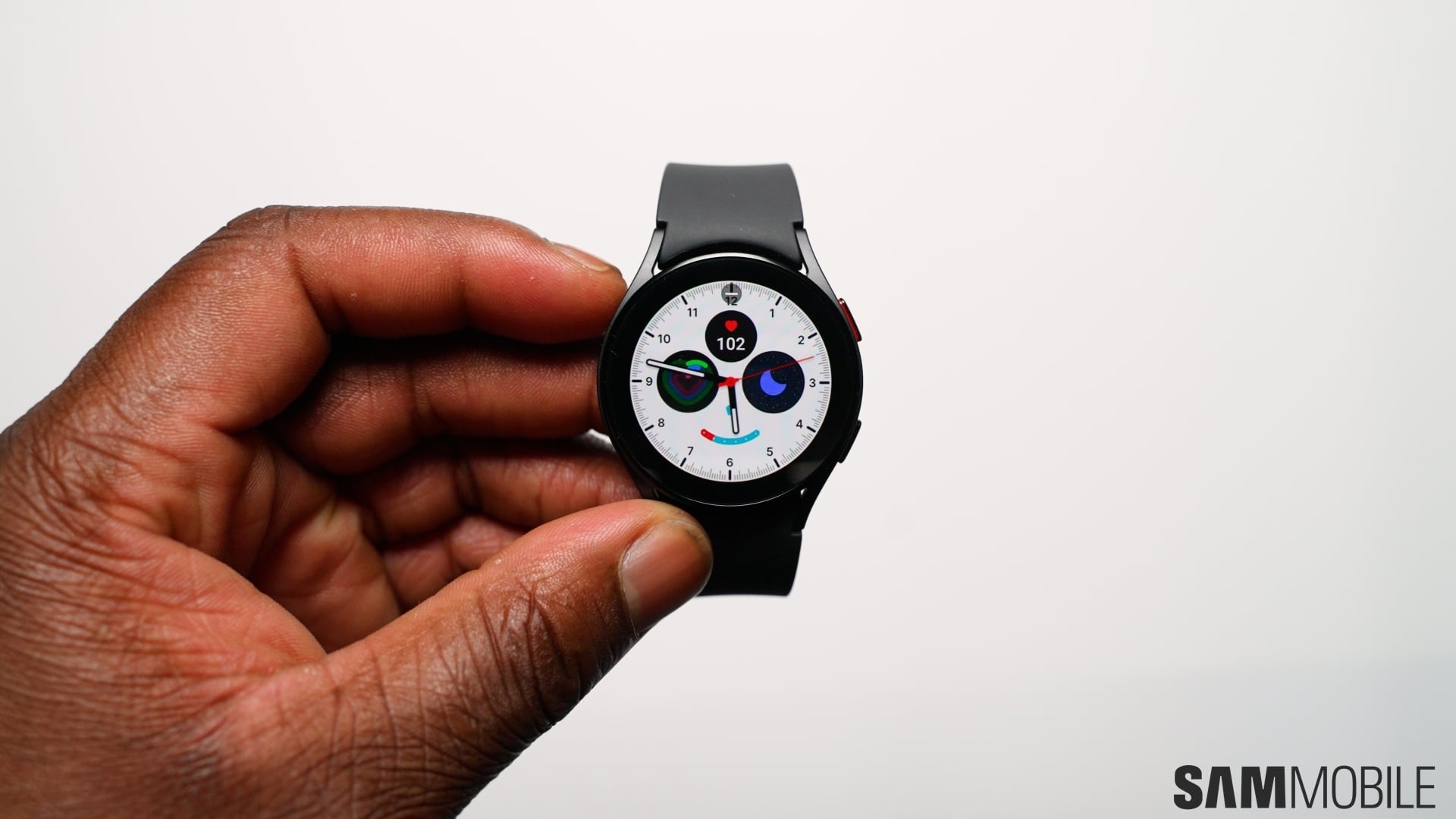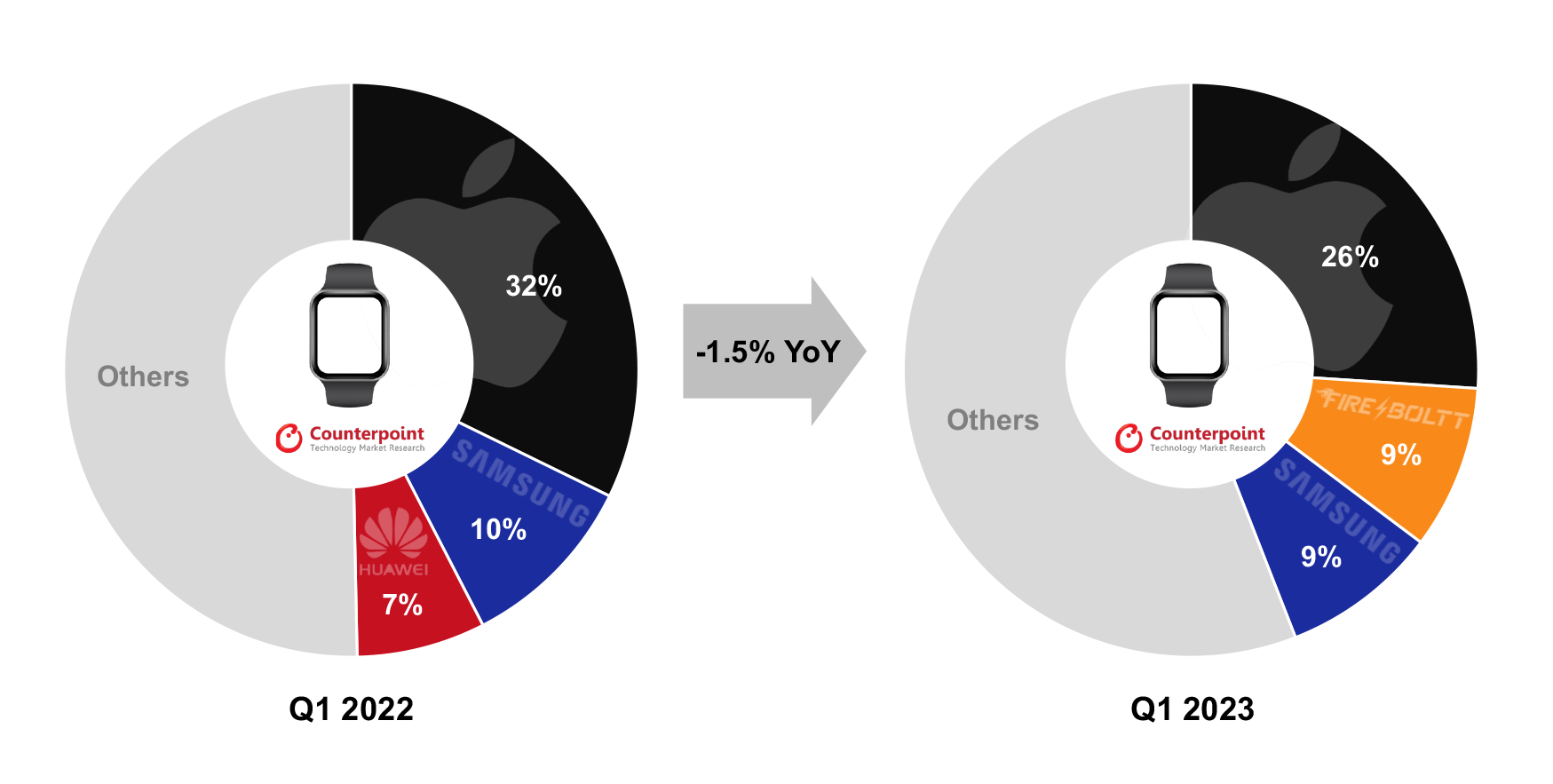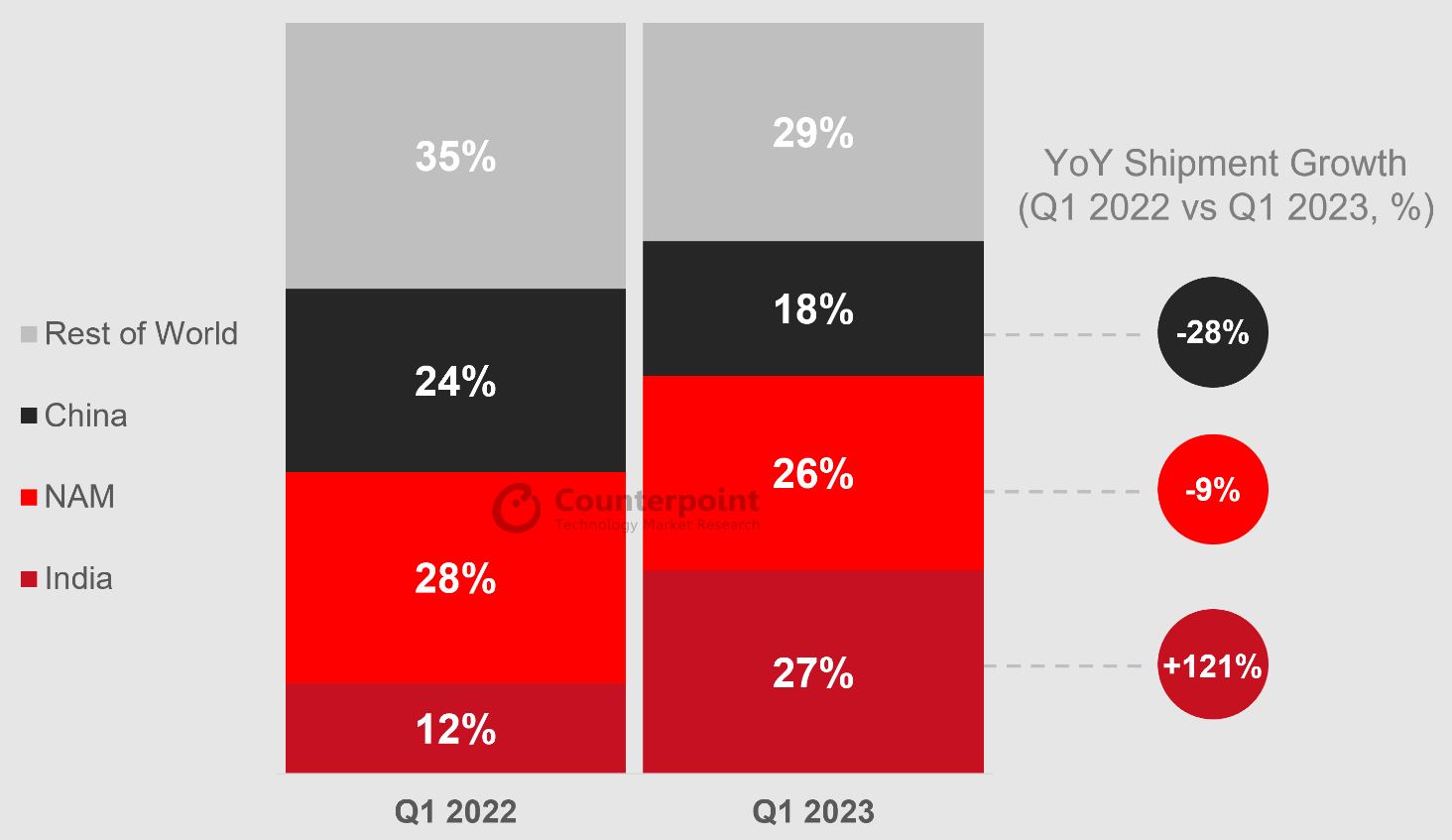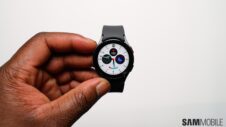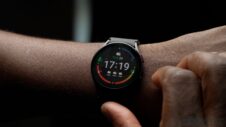Samsung smartwatches have grown in popularity in North America, where the company's Galaxy Watch shipments in Q1 increased by 15% from the previous quarter. This, however, hasn't helped the company retain its 2nd place on a global scale, as shipments in other markets outside North America declined 15% year-on-year and 21% quarter-on-quarter.
Despite their success in NAM, Samsung smartwatches lost 2nd place globally to Indian smartwatch brand Fire-Boltt. For the first time, Fire-Boltt surpassed Samsung in the global smartwatch market after recording a 9% shipment share in Q1 2023. Similarly, Samsung posted a 9% global shipment share, but Counterpoint Research says Fire-Boltt overtook the Korean company seemingly by a narrow margin.
Meanwhile, Apple's global smartwatch shipment share dropped from 32% in Q1 2022 to 26% in Q1 2023, but the company maintained its leadership over the segment.
Even Huawei's shipments in China declined by 15% in Q1 2023, but thanks to increased shipments in regions including LATAM, MEA, and India, the company lost only 9% of shipment share globally. However, this was not enough for Huawei to avoid being pushed off the global smartwatch podium.
India's smartwatch market grew, driven by affordability
Looking at smartwatch shipment shares by region, it becomes clearer why Fire-Boltt beat Samsung. The smartwatch market in China, North America, and the rest of the world shrunk in Q1 2023 — shipment-wise — while smartwatch shipments in India grew from 12% in Q1 2022 to 27% in Q1 2023. Local brand Fire-Boltt was dominant in India.
Fire-Boltt offers more affordable smartwatches, and analysts say that India's wearable market grew 121% YoY thanks to lower prices, higher customer demand, and the fact that smartwatches in India cover a wider price range than most other markets.
It's worth noting that the market analysis at hand includes both HLOS (High-Level Operating System) smartwatches like the Samsung Galaxy Watch 5 and Apple Watch, as well as basic smartwatches, which come with a lighter OS version and don't support third-party apps. They're cheaper than HLOS watches, and in markets including India, they seem to be growing in popularity at a higher rate than full-fledged smartwatches, especially as they're becoming viable replacements for smart bands.
